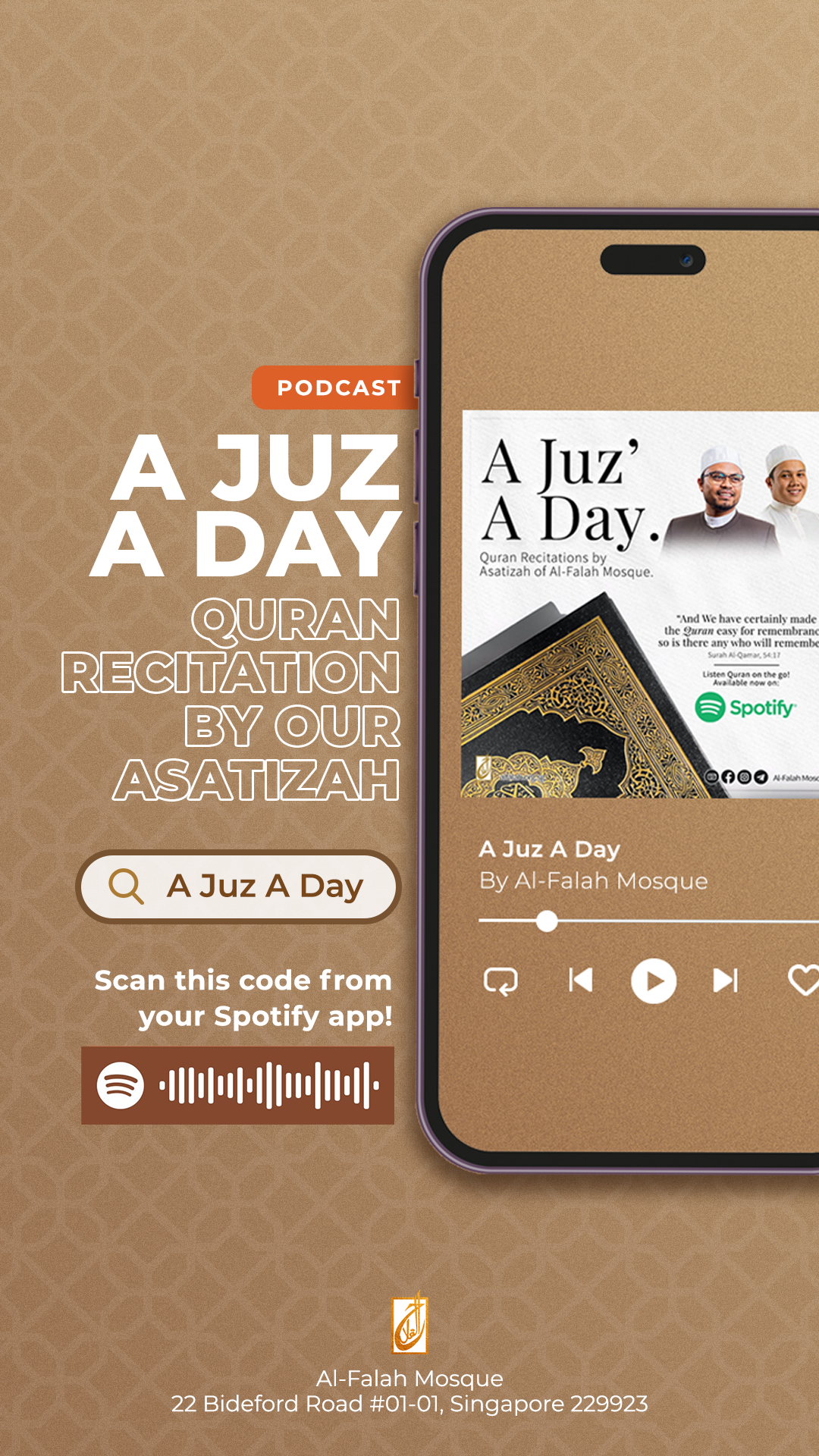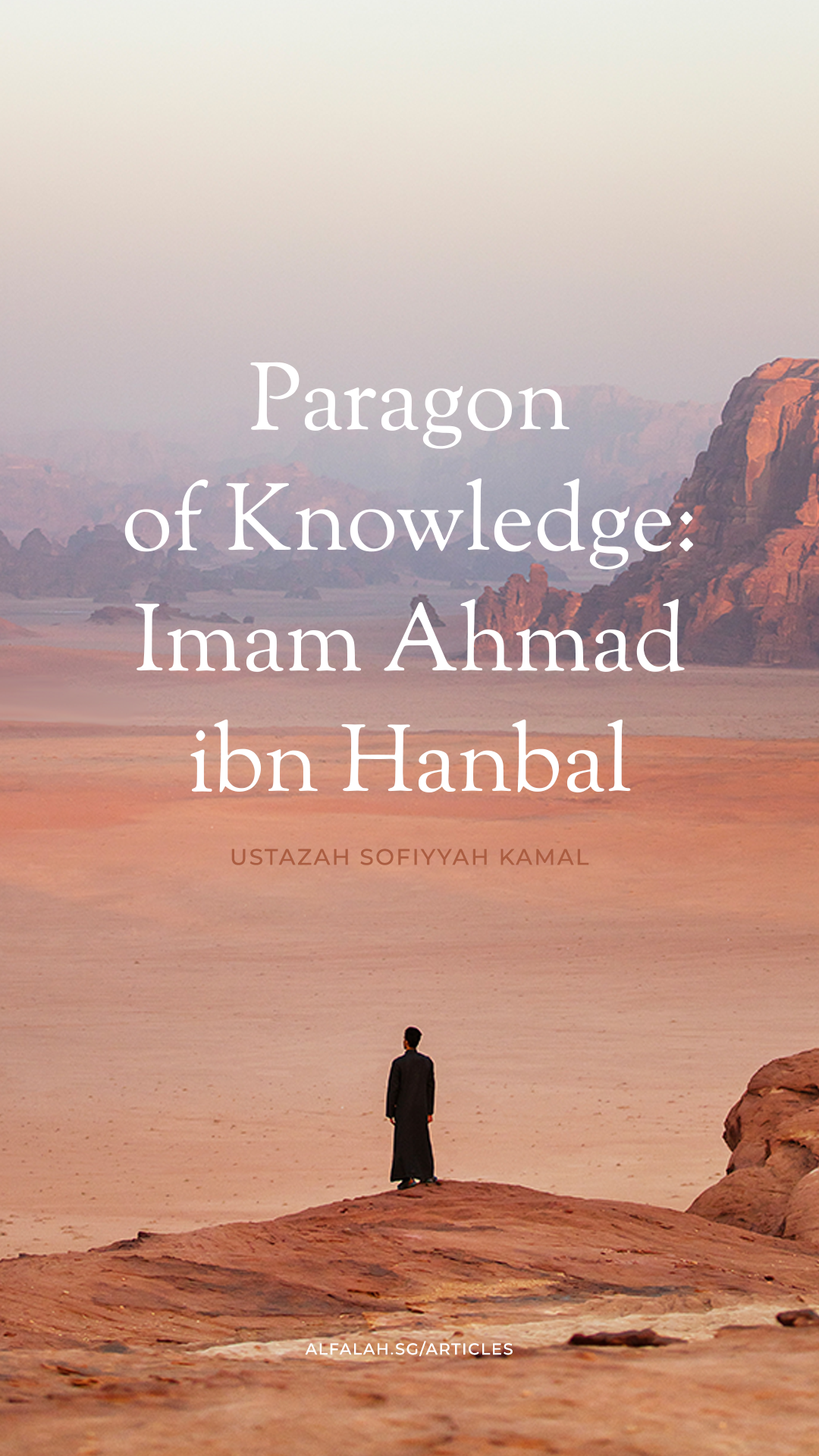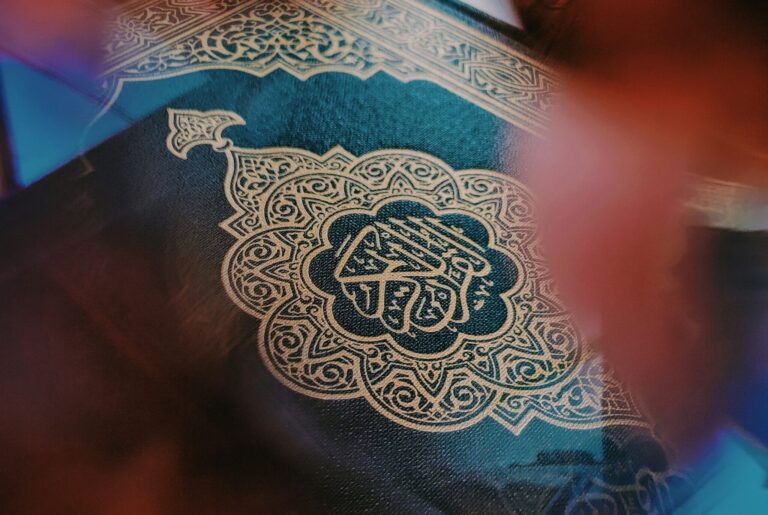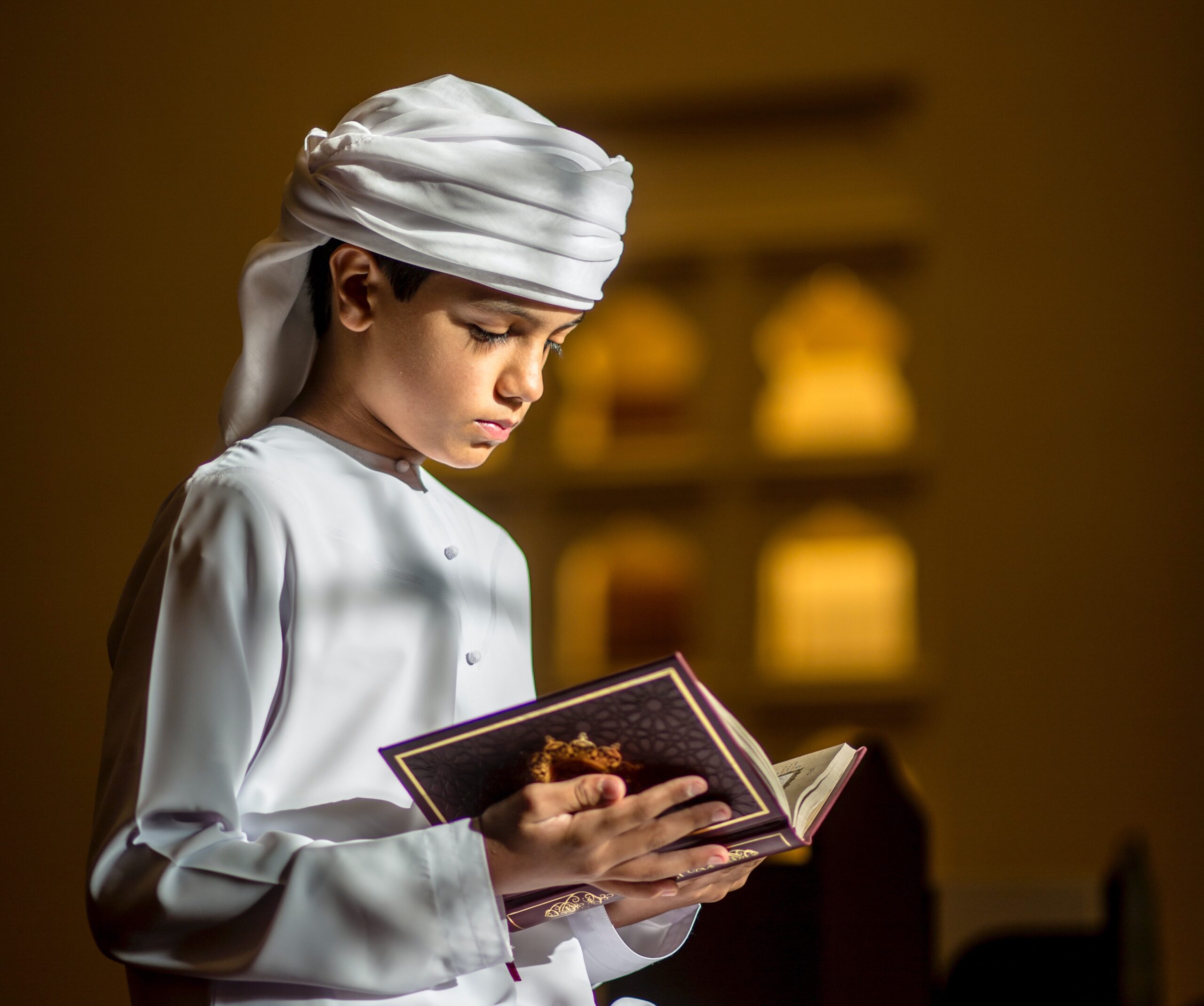Articles
Quranic Examples: Fathers & Holding Conversations With Their Children
The Importance of Talk & Interaction
A fathers’ involvement in verbal communication with their children is integral to their development across various domains, including emotional well-being, cognitive development, social skills, and self-esteem. Active, supportive communication fosters a secure attachment and helps to shape positive, healthy behavior. As a result, fathers who talk to their children contribute significantly to their children’s psychological growth and overall life satisfaction.
This is in line with what the Prophet ﷺ has taught us. Parenthood is more than merely existing as parents. It is about being present, listening. conversing and more importantly, loving.
Giving Life Hacks & Advice (Luqman A.S & Son)
In Surah Luqman verse 17, Allah SWT mentions one of the many advices Luqman A.S poured on to his son:
“O my dear son! Establish prayer, encourage what is good and forbid what is evil, and endure patiently whatever befalls you. Surely this is a resolve to aspire to.”
Luqman A.S was a pious man, known for his devotion to Allah. The Qur’an paints an interesting story of the conversations between him and his son. Luqman A.S holds affectionate conversations with his son, on faith, morality and conduct with human beings. Simple reminders from a father to a son in a gentle and loving way, sparks an unconscious bond between them, igniting a positive impact on a child’s life and psyche.
Giving Empowerment & Space To Grow (Prophet Ibrahim A.S & Son)
In the famous story of Prophet Ibrahim A.S and his son, Prophet Ismail A.S, one may find deeper meanings from the interactions of the father and son. In Surah As-Saffat verse 102, Allah SWT says:
قَالَ يَٰبُنَيَّ إِنِّيٓ أَرَىٰ فِي ٱلۡمَنَامِ أَنِّيٓ أَذۡبَحُكَ فَٱنظُرۡ مَاذَا تَرَىٰۚ
He said, “O my son, indeed I have seen in a dream that I [must] sacrifice you, so see what you think.”
Notice how the Prophet Ibrahim A.S first and foremost shared his dream with his son, which is genuine in its nature, for a father to share to his son. In the next part of the verse, Allah SWT then adds “tell me what you think”, to show the Prophet Ibrahim A.S was willing to listen to his young son’s opinion on the matter. This teaches us that fathers should allow space for their sons to also express their opinions on certain serious matters too, giving them empowerment and the space to mature together with the parent.
Loving a son who disbelieved (Prophet Nuh A.S & Son)
Nuh A.S was a Prophet who lived a long life of over 1,000 years and spent 950 years preaching to his people to believe in Allah SWT and urged them to stop worshipping the idols. As a test from Allah SWT, amongst those who decided to disbelief was his son, his own blood and flesh. In Surah Hud verse 42, Allah SWT says:
وَهِيَ تَجۡرِي بِهِمۡ فِي مَوۡجٖ كَٱلۡجِبَالِ وَنَادَىٰ نُوحٌ ٱبۡنَهُۥ وَكَانَ فِي مَعۡزِلٖ يَٰبُنَيَّ ٱرۡكَب مَّعَنَا وَلَا تَكُن مَّعَ ٱلۡكَٰفِرِينَ
And so the Ark sailed with them through waves like mountains. Noah called out to his son, who stood apart, “O my dear son! Come aboard with us and do not be with the disbelievers.”
This verse is the tragic account of the son of Prophet Nuh A.S who frantically tried to save himself from the gigantic waves of the flood. In this potent dialogue, he calls his son out lovingly (‘O my dear son’) and preaches to him on the truth even in a moment where the Prophet could have just given up when all hopes seem to be lost.
The highest form of love of a father to a son is that he wants his son to believe and become a righteous believer. However, not all of us are blessed with pious offspring. The story of Nuh A.S teaches us the unconditional love of Nuh A.S to his son despite the choice he took, and his patience on the matter. The ending for this was not a very favourable one where Allah SWT mentions in the next verse:
قَالَ سَـَٔاوِيٓ إِلَىٰ جَبَلٖ يَعۡصِمُنِي مِنَ ٱلۡمَآءِۚ قَالَ لَا عَاصِمَ ٱلۡيَوۡمَ مِنۡ أَمۡرِ ٱللَّهِ إِلَّا مَن رَّحِمَۚ وَحَالَ بَيۡنَهُمَا ٱلۡمَوۡجُ فَكَانَ مِنَ ٱلۡمُغۡرَقِينَ
He replied, “I will take refuge on a mountain, which will protect me from the water.” Noah cried, “Today no one is protected from Allah’s decree except those to whom He shows mercy!” And the waves came between them, and his son was among the drowned.
Such was the patience and unyielding love of Nuh A.S for his son.
The Pinnacle of Love (Prophet Ya’qub A.S & Son)
The Prophet Yaqub A.S had a tight relationship with one of his sons Yusuf A.S, to the extent that this filial bond sparked jealousy in the hearts of Yusuf A.S’ brothers. This was the start of the trial of Prophet Yusuf A.S, when he was finally forsaken by his own brothers and thrown into a well. When the news reached Prophet Yaqub A.S, he knew very well that this was the plot of his brothers, yet chose to remain civil and patient with their demeanour. Yet, he weeped for the loss of his beloved son whom he had doted and spent a lot of time with. His sadness was so deep and overwhelmed him, causing him to lose his eyesight due to tears that would not stop for Yusuf A.S. It is mentioned in Surah Yusuf verse 84:
وَتَوَلَّىٰ عَنْهُمْ وَقَالَ يَا أَسَفَىٰ عَلَىٰ يُوسُفَ وَابْيَضَّتْ عَيْنَاهُ مِنَ الْحُزْنِ فَهُوَ كَظِيمٌ
And he turned away from them and said, “How sad I am about Yusuf’ and his eyes turned white with sorrow and he was suppressing (his anger and grief).
Reminders on priorities & responsibilities (Prophet Zakariyyah A.S & Son)
The story of Prophet Zakariyyah A.S captured virtues of patience and reliance on Allah SWT. For the longest time, Prophet Zakariyyah A.S waited for a son, until his hair had turned old. One day, it was decreed that he and his wife would have a child despite being barren and aged. The Prophet was pleased that his prayers were answered, and as he finally bore his only child Yahya A.S, he gave advice on a very important matter. He advised his son to hold on to the book (the words of Allah SWT) firmly, and use it as a compass to navigate through life and its tribulations. This advice is one that fathers should relay to their sons, as how Zakariyyah A.S did. As a result of Allah’s decree, Yahya A.S became a pious and wise youth and grew to be a Prophet. In Surah Maryam verse 12, Allah SWT says of their conversation:
يَا يَحْيَىٰ خُذِ الْكِتَابَ بِقُوَّةٍ ۖ وَآتَيْنَاهُ الْحُكْمَ صَبِيًّا
“O Yahya! Hold firmly to the Scriptures.” And We granted him wisdom while he was still a child,”
Treating another’s son like his own (Prophet Muhammad S.A.W & Ibn Abbas)
Our Prophet Muhammad S.A.W, was a prophet who was not blessed with sons, as all of them did not live long enough. Despite this, he was a fatherly figure to both his daughters and other children around him. One of which was Ibn Abbas R.A., his own young cousin, who grew to be a Mufassir (interpreter of the Qur’an). In one profound account, the Prophet S.A.W held an important and serious yet gentle conversation to explain the realities of this world. He did so to Ibn Abbas even though he was very young. This shows us the importance of having deep conversations with children, to educate them on priorities especially pertaining to the religion.
In the Hadith, it is mentioned:
Abu al-‘Abbas ‘Abdullah bin ‘Abbas(ra) reports:
“One day I was riding (a horse/camel) behind the Prophet, peace and blessings be upon him, when he said, ‘Young man, I will teach you some words. Be mindful of God, and He will take care of you. Be mindful of Him, and you shall find Him at your side. If you ask, ask of God. If you need help, seek it from God. Know that if the whole world were to gather together in order to help you, they would not be able to help you except if God had written so. And if the whole world were to gather together in order to harm you, they would not harm you except if God had written so. The pens have been lifted, and the pages are dry.’ ”
(Related by Tirmidhi)
This Hadith explains on 3 key pillars of a person’s life; to take care of the rights of Allah SWT, to ask Him only for His aid and to remember that the people do not matter, so long so Allah’s pleasure is attained.
These reminders, though concise, carries profound meaning. The content of the message is heavy and may even be philosophical, yet the Prophet S.A.W chose to relay this to a young man, namely Ibn Abbas R.A. This serves as an act to empower sons and daughters with serious and critical reminders, which should be the way to go when interacting with the young, which is by being open and shower them with wisdom of faith.
Disclaimer
Support Our Dakwah














